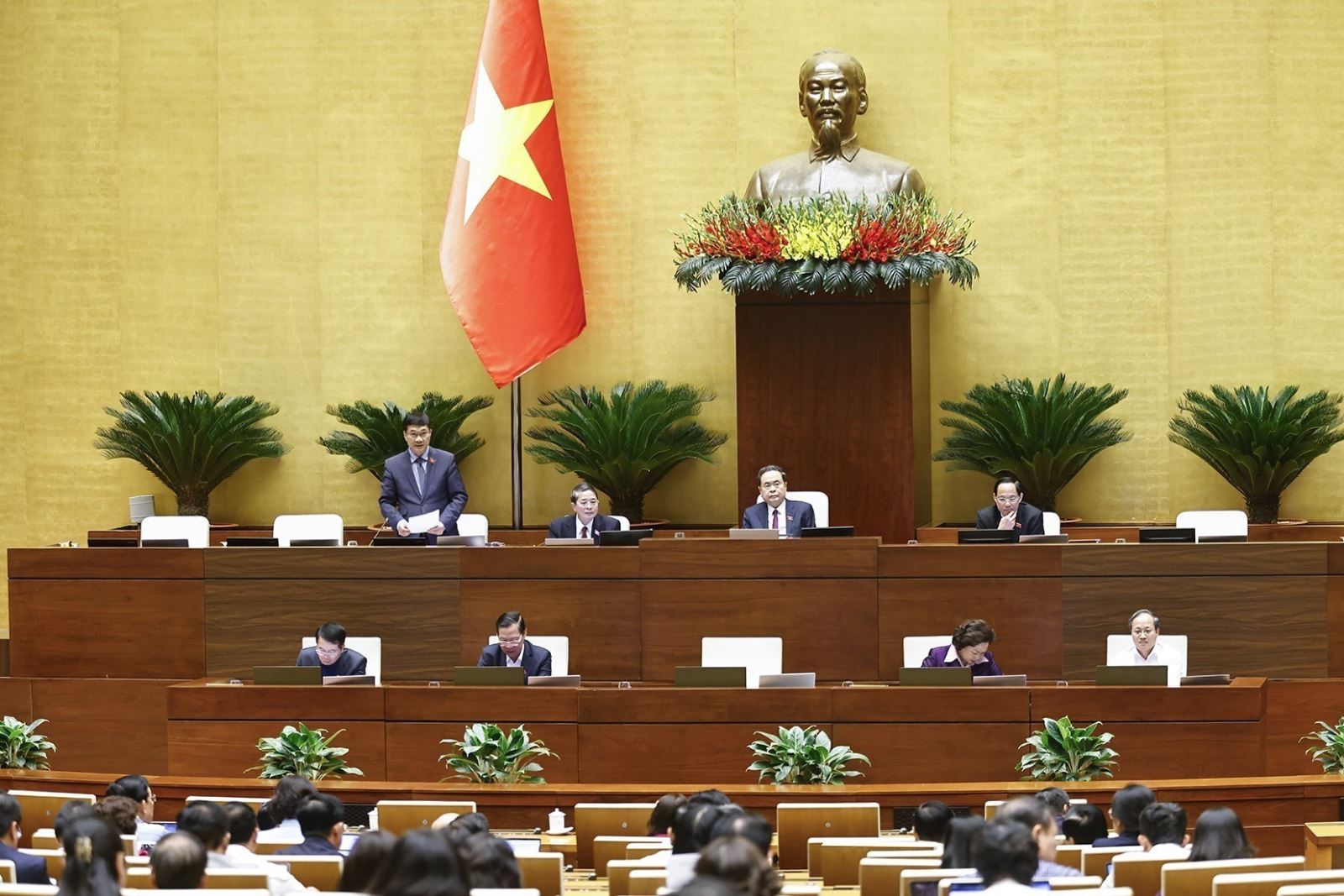
Scene of the National Assembly session on the afternoon of November 14, 2025. Photo: Doan Tan/VNA
Total central budget revenue is 1,225,356 billion VND
Last week, the National Assembly voted to pass the Resolution on the central budget allocation plan for 2026, in which the total central budget revenue is 1,225,356 billion VND, with 100% of delegates in agreement.
Total central budget expenditure is 1,809,056 billion VND, of which 238,421 billion VND is estimated to supplement local budget balance; 53,554 billion VND is estimated to supplement localities to ensure the implementation of the basic salary level of 2.34 million VND/month; 187,175 billion VND is estimated to supplement local budget targets.
The Resolution on the central budget allocation plan for 2026, with the overwhelming majority of votes in favor, demonstrates high consensus and agreement. Enhancing the leading role of the central budget is one of the contents that the Party, State, and Government pay great attention to and direct the Ministry of Finance to carefully review when preparing annual estimates. For the 2026 estimate, the leading role of the central budget is shown from various perspectives, as follows:
Total central budget expenditure accounts for 57.7% of total state budget expenditure, ensuring political , defense, and security tasks, investing in important national tasks and projects, synchronously developing socio-economic infrastructure, and creating momentum for the country's economic growth.
The central budget continues to supplement 479,000 billion VND to the local budget to ensure balance, targeted supplementation to implement projects, social security policies and salary reform. Particularly for the central budget, accounting for 48.4% of the total state budget revenue, stemming from the reason to ensure security, financial safety, and prudence in the context of many fluctuations.
Balanced revenue from import-export activities is equivalent to the estimated implementation in 2025. Meanwhile, the estimated revenue from land use fees in 2026 is expected to increase higher, by 220 trillion VND compared to the estimate in 2025, because it is expected that in 2026, the national transport infrastructure will continue to be completed, and land lease auctions will be promoted, while this is a local budget revenue that enjoys up to 85.7%.
Minister of Finance Nguyen Van Thang said that if land use fee revenue is excluded, the central budget accounts for over 56% of the total state budget revenue. In addition, according to Article 44 of the Resolution on the 2026 state budget estimate, in implementation, the National Assembly assigned the Government to direct the effort to increase the state budget revenue in 2026 by at least 10% compared to the estimated implementation in 2025, so it is expected that the proportion of central budget revenue will increase during the implementation process, ensuring the enhancement of the leading role of the central budget.
For 2027, synchronous implementation according to the State Budget Law 2025 will comprehensively change the decentralization of revenue sources and expenditure tasks between the central and local levels, and the leading role of the central budget will be further consolidated.
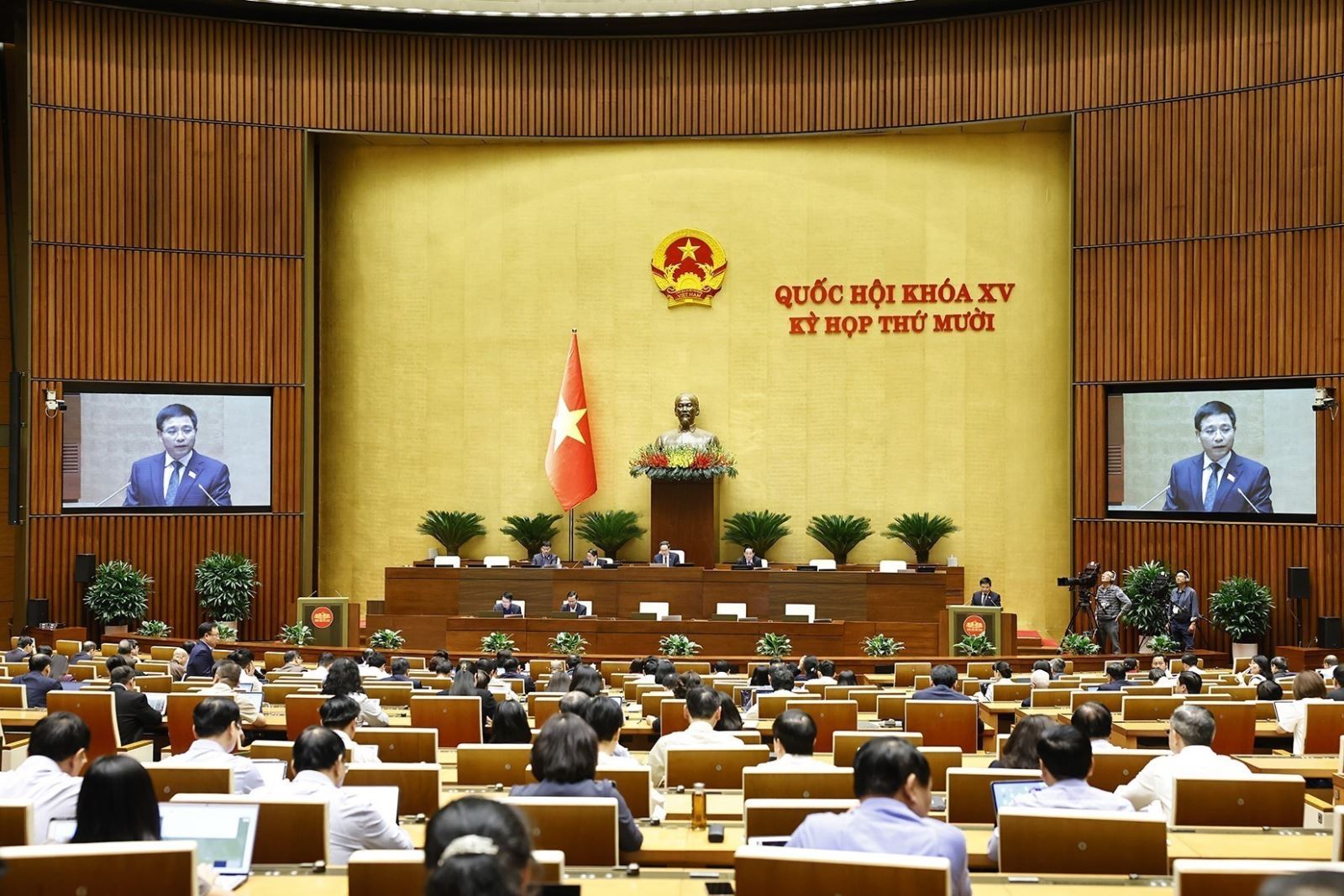
Minister of Finance Nguyen Van Thang speaks at the National Assembly. Photo: Doan Tan/VNA
Minister of Finance Nguyen Van Thang reported more clearly about the fact that the regular expenditure estimate that has not been allocated in detail at the beginning of the year is still quite large. The central budget allocation plan submitted to the National Assembly has been carefully reviewed by the Government, only assigning the budget at the beginning of the year for tasks, regimes, and policies, ensuring full conditions, procedures, clearly identifying the subjects, funding levels, and spending regimes according to regulations.
In report No. 56, the remaining unallocated expenditure is about 92,000 billion VND. In response to the opinions of National Assembly deputies, the Government has submitted to the National Assembly a detailed allocation of funding to support localities in road maintenance management of about 10.4 trillion VND. The remaining amount is mainly tasks that have been approved by the Party and State but are in the process of institutionalization, issuance of documents for implementation or need to continue reviewing the actual expenditure levels to ensure spending on the right subjects and avoid waste.
Of which, 33,000 billion VND is allocated to the fields of healthcare, education, science and technology, innovation and digital transformation, law making and enforcement to implement breakthrough resolutions issued by the Politburo after full institutionalization and continued review of specific tasks and projects.
About 10,000 billion VND is reserved for pension policies, subsidies for meritorious people and some social policies after competent authorities decide on adjustment plans.
About 2.7 trillion VND to serve the organization of elections for the National Assembly and People's Council deputies.
Allocate 15,000 billion VND to ensure national financial security and safety according to the policy of the Central Politburo.
The rest are policies on tuition exemption and reduction, support for study costs, social security, support for forest protection tasks and development, support for aquaculture and seafood exploitation.
The Minister of Finance said that in the draft resolution, the regulation assigns the Government to urgently issue guiding documents and necessary spending regimes as a basis for deciding on additional funding for ministries, central and local agencies, ensuring the implementation of tasks, regimes and policies, ensuring the right subjects, savings, efficiency and avoiding waste.
Regarding the allocation of the regular expenditure budget to ensure priority for the country's political tasks, national target programs and the reform of salaries, pensions, preferential allowances for meritorious people, and social security policies, the Government reported that: The central budget allocation plan for 2026 submitted to the National Assembly has been reviewed, prioritizing resources to organize the 14th National Party Congress, organize the election of National Assembly deputies and People's Council deputies at all levels for the new term; national defense, security, social security tasks, and important tasks of the country. At the same time, the budget also allocates resources to implement National Target Programs in accordance with the first year of implementing salary reform, pensions, preferential allowances for meritorious people, and social security policies.
Minister of Finance Nguyen Van Thang added that regarding the transfer of funding sources for the 2021-2025 period of the National Target Programs, the Government will direct ministries and agencies to submit to the National Assembly agencies to report to the National Assembly to be reflected in the session's Joint Resolution.
Clearly define the criteria when applying the mechanism to increase deposit insurance premiums
Also last week, the National Assembly had heated discussions on many draft laws; including the draft Law on Deposit Insurance (amended). Delegates agreed with the provisions of the draft law on applying the mechanism of increasing deposit insurance premiums to compensate for special loans of the State Bank, to ensure the principle of using market resources to handle market problems, avoiding mass withdrawals at healthy banks; at the same time, it was proposed to add principled, directional and binding provisions in the law on this content.
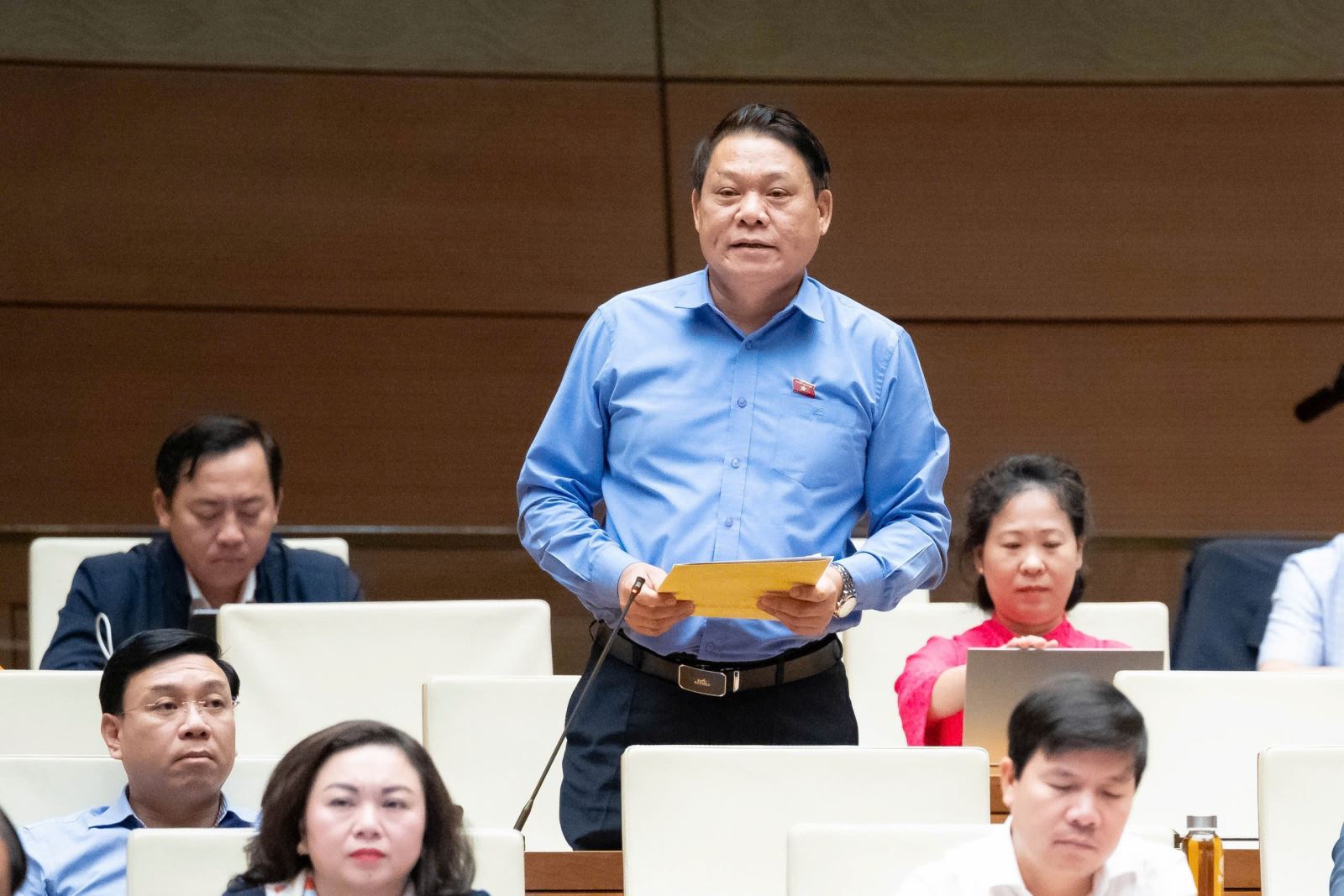
Delegate Nguyen Thanh Nam (National Assembly Delegation of Phu Tho province) spoke.
Contributing comments to complete Clause 4, Article 36, delegate Nguyen Thanh Nam (National Assembly Delegation of Phu Tho Province) said that the draft law has added a provision that in case the Operational Reserve Fund is not enough to pay, the deposit insurance organization will be given a special loan by the State Bank to pay. Some delegates said that adding a special loan mechanism is a reasonable and essential financial solution, in line with the practice of managing the International Deposit Insurance Fund, ensuring consistency and consistency with the provisions of the Law on Credit Institutions; the ability to make immediate liquidity and protect the rights of depositors. This also prevents the risk of spreading and the domino effect in the system.
To ensure consistency and strictness, National Assembly delegates proposed that the Drafting Agency study and review clear and consistent regulations on cases where deposit insurance organizations are allowed to borrow specially from the State Bank of Vietnam, between the provisions in Clause 1, Article 38, Clause 4, Clause 1, Article 36 and Article 21 of the draft law.
Clause 2, Article 38 of the draft law stipulates that the deposit insurance organization shall develop a plan to increase deposit insurance premiums to compensate for the special loans of the State Bank. Delegates agreed with the provisions of the draft law on applying the mechanism of increasing deposit insurance premiums to compensate for special loans. Because when the deposit insurance is provided with special loans by the State Bank, it is necessary for the remaining healthy credit institutions to contribute additional fees to ensure the principle of using market resources to handle market problems, avoid mass withdrawals at healthy banks, and ensure the confidence of depositors.
However, from another perspective, delegate Nguyen Thanh Nam expressed the view that increasing deposit insurance premiums will directly impact the operations of deposit insurance participating organizations, increase operating costs, affect the profits of deposit insurance participating organizations, forcing deposit insurance participating organizations to adjust their financial business plans. If the increase is not controlled or applied for a long time, it can negatively impact the operations of the deposit insurance participating organizations system and the competitiveness of the entire system, creating financial pressure for deposit insurance participating organizations.
Therefore, to ensure that the above mechanisms are implemented effectively, transparently and with market discipline, delegates proposed to supplement and clarify a number of principles, orientations and binding provisions in the law. Accordingly, in the fee increase plan stipulated in Clause 2, Article 38, it is necessary to clearly define the criteria for the fee increase level, the application period of the fee increase, the conditions for application and public announcement to ensure transparency. At the same time, create conditions for organizations participating in deposit insurance to proactively make long-term business plans.
In addition, in Clause 3, Article 38 of the draft law, it is necessary to clearly define the responsibility of the Governor of the State Bank in guiding the deposit insurance organization to borrow special loans. The guidance must show the specific financial condition threshold, so that the deposit insurance organization is allowed to request special loans, especially only after maximizing other resources as prescribed; limit the maximum increase in deposit insurance premiums to compensate for the special loan; limit the time of application, the fee increase plan, the maximum repayment time frame for the special loan; affirm that the special loan must be given absolute priority to be used for the purpose of paying deposits, not applied to other market intervention goals. In the long term, it is necessary to apply a differential deposit insurance premium mechanism instead of the current uniform deposit insurance premium mechanism.
“The development of laws and decentralization must go hand in hand with the establishment of a strict and effective control mechanism, by supplementing and clarifying a number of principles, orientations and binding provisions in the law. We will create a solid legal corridor to ensure that special loans are a stable, systematic and effective tool, not an easy financial exit, achieving the dual goal of protecting depositors, maintaining market discipline and safety of the entire credit system,” said delegate Nguyen Thanh Nam.
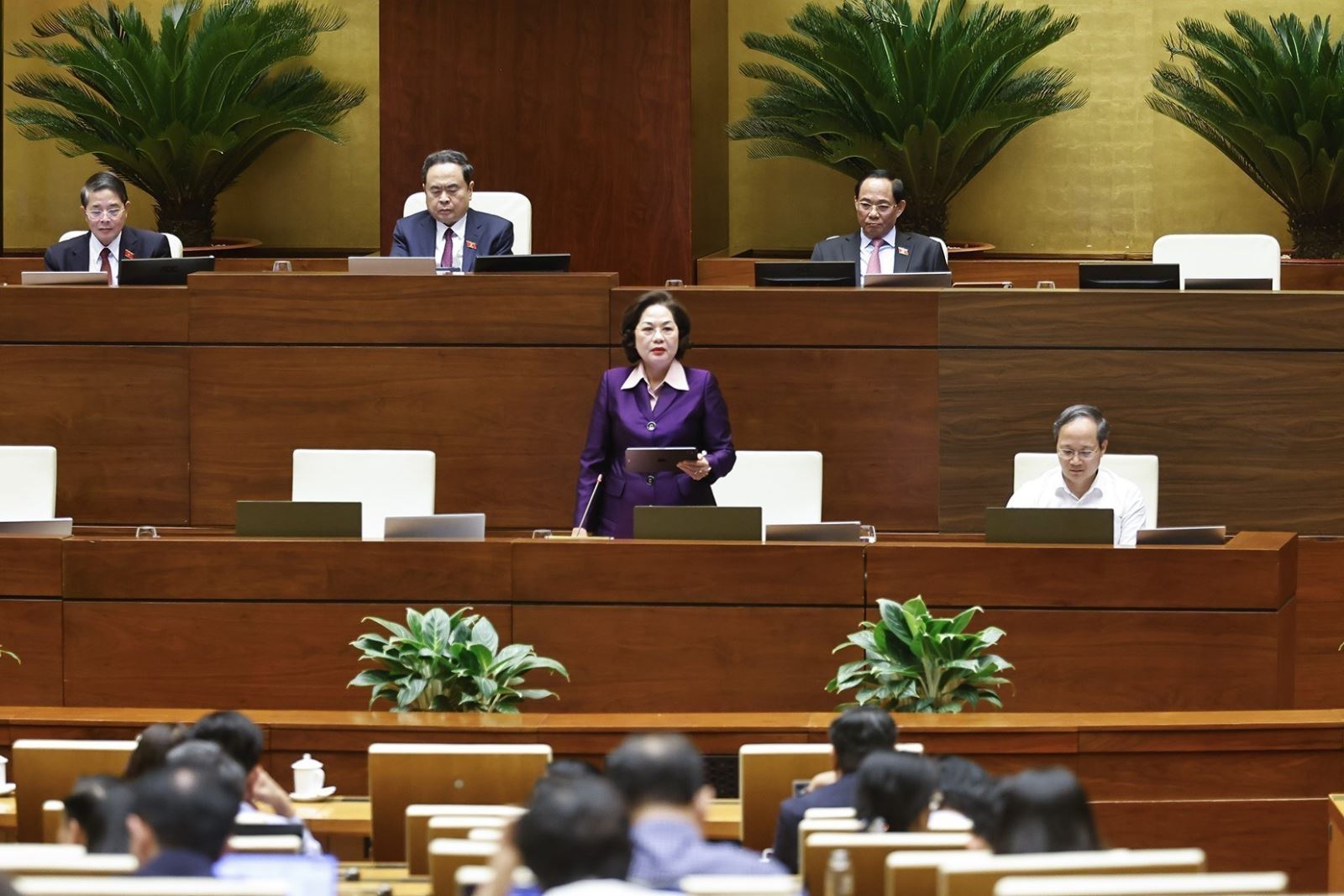
Governor of the State Bank of Vietnam Nguyen Thi Hong explains and clarifies a number of issues raised by National Assembly deputies. Photo: Doan Tan/TXVN
Explaining the issue raised by delegates regarding the regulation on increasing deposit insurance premiums to offset the special loan from the State Bank, Governor of the State Bank of Vietnam Nguyen Thi Hong said that the draft Law on Deposit Insurance (amended) proposes: In case the Deposit Insurance organization borrows a special loan from the State Bank, the Deposit Insurance organization shall develop a plan to increase deposit insurance premiums to offset the special loan from the State Bank and send it to the State Bank for consideration and decision.
The Draft Law also proposes the following regulations on special loans to the State Bank: The deposit insurance organization shall develop a plan to increase deposit insurance premiums to offset the special loans; use money to repay the special loans of credit institutions, revenue from selling valuable papers held by the deposit insurance organization, from liquidating assets of credit institutions with special loans, and deposit insurance premiums to prioritize repayment of special loans to the State Bank.
Governor Nguyen Thi Hong affirmed: The fee increase will only be implemented in special cases and when the operational reserve fund is not enough to pay deposit insurance, and a special loan from the State Bank must be borrowed to pay depositors. This is to prevent the risk from spreading and to best ensure the interests of depositors.
Regarding the insurance limit, according to State Bank Governor Nguyen Thi Hong, this issue depends on the economic situation, the average balance of insured deposits as well as the payment capacity of the deposit insurance fund. "These criteria may change from time to time and the draft law assigns the State Bank to regulate the deposit insurance limit to increase initiative, flexibility and suitability with reality," said State Bank Governor Nguyen Thi Hong.
Entering the 5th working week, taking place from November 17 to 22, the National Assembly continues to discuss draft laws; in particular, during this working week, the National Assembly will discuss a number of important draft Resolutions of the National Assembly.
These are: Draft Resolution of the National Assembly on specific mechanisms and policies to implement Resolution No. 71-NQ/TW dated August 22, 2025 of the Politburo on breakthroughs in education and training development; Resolution of the National Assembly on mechanisms and policies to effectively implement Resolution No. 72-NQ/TW dated September 9, 2025 of the Politburo on a number of breakthrough solutions to strengthen the protection, care and improvement of people's health; Draft Resolution of the National Assembly stipulating a number of mechanisms and policies to remove difficulties and obstacles in organizing the implementation of the Land Law; Draft Resolution of the National Assembly on a number of specific mechanisms and policies to improve the effectiveness of international integration.
VT/News and People Newspaper
Source: https://baotintuc.vn/thoi-su/quoc-hoi-thao-luan-nhieu-noi-dung-quan-trong-bieu-quyet-thong-qua-nghi-quyet-ve-phuong-an-phan-bo-ngan-sach-20251115153523739.htm


![[Photo] Prime Minister Pham Minh Chinh meets with representatives of outstanding teachers](https://vphoto.vietnam.vn/thumb/1200x675/vietnam/resource/IMAGE/2025/11/15/1763215934276_dsc-0578-jpg.webp)


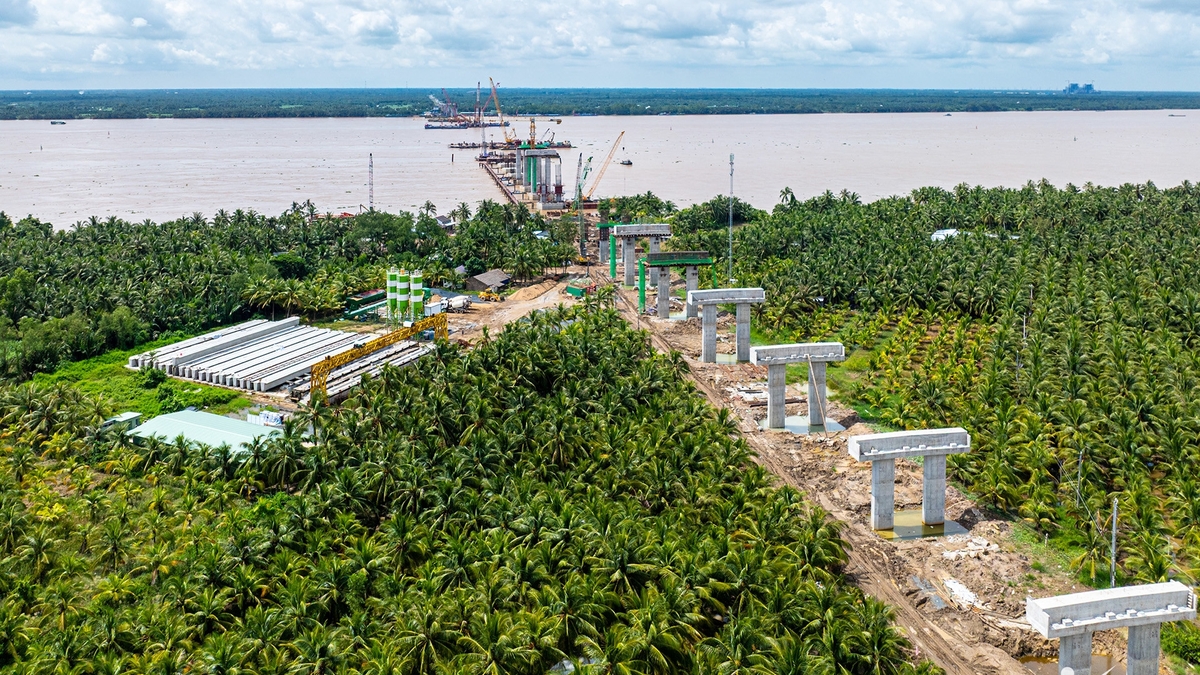




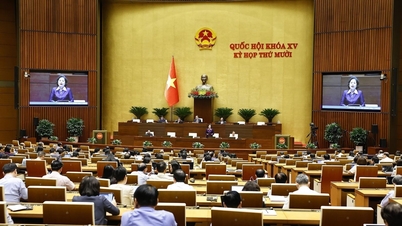

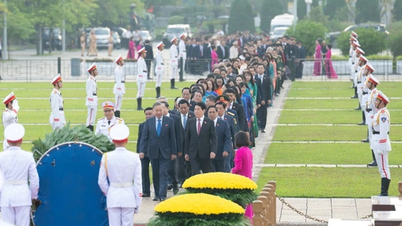
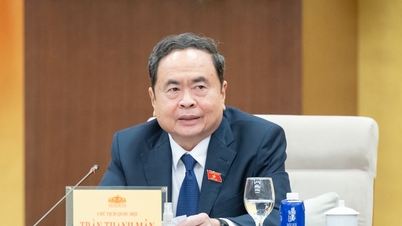

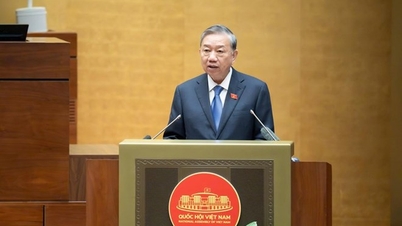







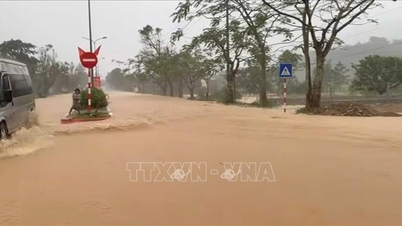








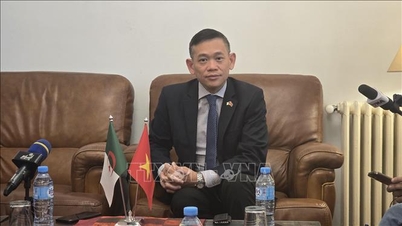

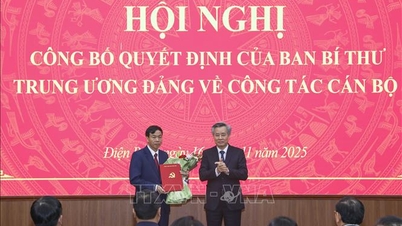




































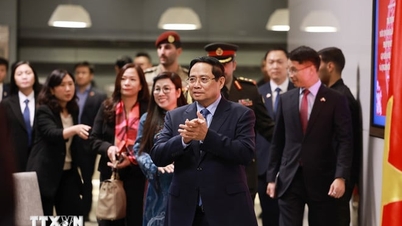


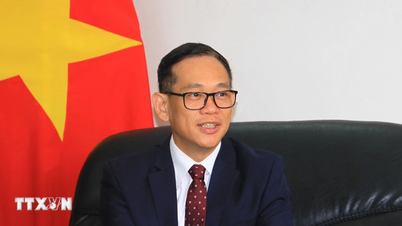












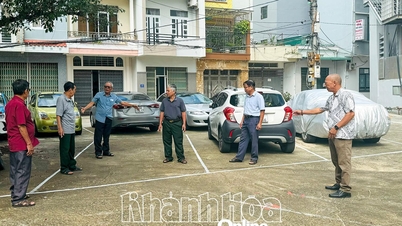



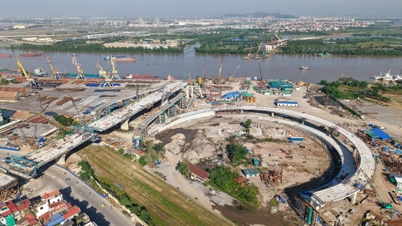












Comment (0)